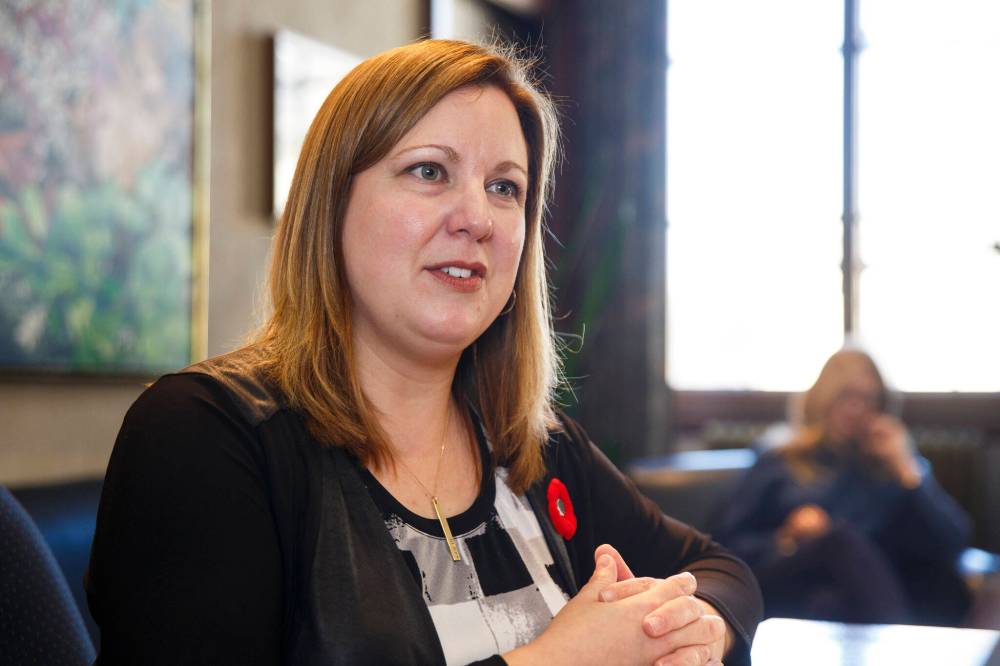Province should consider all harm-reduction options
Advertisement
Read this article for free:
or
Already have an account? Log in here »
To continue reading, please subscribe:
Monthly Digital Subscription
$0 for the first 4 weeks*
- Enjoy unlimited reading on winnipegfreepress.com
- Read the E-Edition, our digital replica newspaper
- Access News Break, our award-winning app
- Play interactive puzzles
*No charge for 4 weeks then price increases to the regular rate of $19.00 plus GST every four weeks. Offer available to new and qualified returning subscribers only. Cancel any time.
Monthly Digital Subscription
$4.75/week*
- Enjoy unlimited reading on winnipegfreepress.com
- Read the E-Edition, our digital replica newspaper
- Access News Break, our award-winning app
- Play interactive puzzles
*Billed as $19 plus GST every four weeks. Cancel any time.
To continue reading, please subscribe:
Add Free Press access to your Brandon Sun subscription for only an additional
$1 for the first 4 weeks*
*Your next subscription payment will increase by $1.00 and you will be charged $16.99 plus GST for four weeks. After four weeks, your payment will increase to $23.99 plus GST every four weeks.
Read unlimited articles for free today:
or
Already have an account? Log in here »
Hey there, time traveller!
This article was published 07/11/2022 (1131 days ago), so information in it may no longer be current.
It has been a period of celebrating and cringing for local harm-reduction advocates.
Late last month, the province’s first overdose prevention site opened. Last Wednesday, the provincial government doubled down on its commitment to bar these kinds of sites from operating in Manitoba.
The former milestone comes by way of a large beige RV that has begun offering harm-reduction kits, drug-checking services and program referrals to residents in the downtown core six days a week. The mobile overdose prevention site is the work of Sunshine House, a community resource centre on Logan Avenue, made possible by nearly $400,000 in funding from the federal government and an exemption from Health Canada under the Controlled Drugs and Substances Act.

MIKE DEAL / WINNIPEG FREE PRESS FILES
Minister of Mental Health and Community Wellness Sarah Guillemard.
It’s a grassroots response to an issue that is killing hundreds of Manitobans every year. In 2021, the province set a grim record with 407 preventable overdose deaths, and is on track to surpass that with 215 fatalities recorded in the first six months of this year.
Sunshine House’s mobile facility allows users to test their supply for toxicity and take drugs in the presence of staff members trained to administer naloxone, a medication used to reverse opioid overdoses. Testing and supervision are proven low-barrier ways to prevent drug-related deaths.
While numerous studies have determined supervised consumption sites are effective ways to save lives, reduce disease transmission and connect drug users to addiction services, Manitoba’s Progressive Conservative government remains staunchly opposed to the concept.
“The strongest harm-reduction strategy is actually to encourage individuals off the drugs,” Mental Health and Community Wellness Minister Sarah Guillemard said last week.
Ms. Guillemard even went so far as to assert the range of safe consumption site models used in other jurisdictions wouldn’t work locally. These comments followed the announcement of expanded funding for the province’s Rapid Access to Addiction Medicine (RAAM) clinics — which help connect patients with doctors, treatment programs and medication.
Extending the service hours of the six pre-existing RAAM clinics in Manitoba is a necessary step in addressing the outsized demand for addiction services, but it can’t be the only step. Just as abstinence-only sex education isn’t an effective way to reduce teen pregnancy, addiction services focused solely on abstinence are destined to fail. And failure, in this case, means continued loss of life.
However, additional harm-reduction strategies — as called for in a letter to the province signed by more than 80 local organizations — are unlikely to be deployed in Winnipeg anytime soon.
The province seems to have gained an ally in its moral crusade against supervised consumption sites with the election of new Winnipeg Mayor Scott Gillingham. On the campaign trail, Mr. Gillingham said he wouldn’t support such a site, but appeared to waffle on the issue last week, saying he hadn’t ruled it out but that any development would require provincial approval.
While Sunshine House has succeeded without support from either level of government, keeping its mobile overdose prevention site on the road will require continued fundraising efforts.
The impact of the program has yet to be seen, but if municipal and provincial leaders are looking for hard evidence that more harm-reduction services are desperately needed in Winnipeg and Manitoba, they would do well to study the grassroots work taking place in their own backyard.



